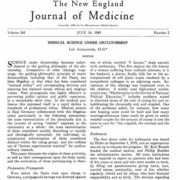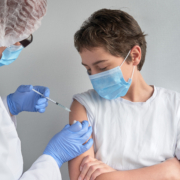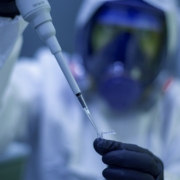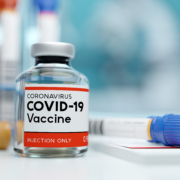God, ethics and COVID-19
 ‘Oh – and by the way, I’ve recommended you for chairing the Covid Ethics Committee. Hope that’s OK.’ Really? Me? Why? God – Help!
‘Oh – and by the way, I’ve recommended you for chairing the Covid Ethics Committee. Hope that’s OK.’ Really? Me? Why? God – Help!
I had known, of course, that there was a plan to put together an Ethics Committee. It was necessary. With COVID-19 gathering pace and some immediate decisions to be made – such as criteria for which patients get critical care review, differences between some speciality guidelines and national or other speciality guidelines, and decisions over Do Not Attempt Resuscitation (DNAR) orders etc., things were about to potentially get tricky. As one of the clinical governance leads in the hospital, I already had warning that I was likely to be asked to be on the Committee. But there is a palpable difference between being on a committee and chairing it. Especially when things could all be about to get complicated.
I’m a surgeon. I like practical things. I want to deal with diseases that I can see and that I can remove and where I can see what treatment I have given. As I began reading and researching my new role, I realised that I was somehow going to have to convert thinking around ethical decision-making, which appears quite philosophical to me, into a useful tool that we could then apply to some really practical problems. To be honest, it’s not the first time I had done something like this – I’ve written a couple of papers and a book chapter on ethics within global surgery which applied ethical principles to the practice of surgeons working in low-income countries – but this was clearly going to be quite different.
First things first. I have a brilliant and prayerfully-formidable homegroup. I had quickly discovered with experience of Covid at that point, that I could ask my homegroup to pray for anything and it would get answered. As the Bible says,
‘Do not be anxious about anything, but in every situation, by prayer and petition, with thanksgiving, present your requests to God.’ (Philippians 4:6)
So clearly, that had to be the starting point. Get praying and get my homegroup on the case, and I could then be reassured that everything else would fall into place. Secondly, I needed to appoint the Committee and draft the Terms of Reference. At this point, I realised that with an astute and wise committee, the hard work in terms of decision-making would become very much easier. After all, the writer of Proverbs states,
‘The wise prevail through great power, and those who have knowledge muster their strength. Surely you need guidance to wage war, and victory is won through many advisors.’ (Proverbs 24:5-6)
And so, I started inviting to the committee people with expertise in infection control, medicine, elderly care and governance, in addition to our lead chaplain, legal expert and patient representative. Nursing staff make up much of the front line, and I felt that it was particularly important that they should always be represented. I thanked God for them all. I prayed that he would fill them all with wisdom. Then the work could begin.
I’m very grateful to God that much of the hard work around prioritisation and ethical decision-making has been dealt with by the publication of national guidelines. For example, the national guidelines around which cancers get operated on and which can be deferred has meant that this sort of work does not have to come through ethics. But unfortunately, national or specialist organisation guidelines do not cover everything. There are decisions that I am dreading having to tackle head-on in Ethics – such as how health professionals should behave if there is an absence of suitable personal protective equipment (PPE). Especially when looking after a patient in a critical care environment. We’ve avoided this so far (just!), but it may yet be a decision that needs to be made. It would have to be associated with a conversation about how the law would react to avoidable deaths in two competing situations – avoidable death of a healthcare professional who caught Covid due to lack of suitable PPE, and avoidable death of a patient who died because, due to a lack of PPE, the care of the patient did not meet minimum standards.
From a practical point of view, we work in the following way: If I’m asked for something to be discussed by the C19 Ethics Committee, I ask whoever can present and explain the problem to attend the committee meeting so that they can explain in detail what the problem is. Often, they already have a potential solution. Occasionally, if there is disagreement as to how best to manage the problem, I invite all parties to attend.
We discuss the issue in detail until we come to a recommendation as to how to proceed or what further information is required. We then run the decision-making process through an ethical framework based on the work by Beauchamp and Childress (1):
- Beneficence: Who will be affected? Patients? Staff? Families? Community? What are the best interests of each party, and how should they be prioritised?
- Non-maleficence: What are the possible harms? How can these harms be minimised for each party? Where are the compromises?
- Justice: What are the resource implications? Who is most in need of the resources available, and what are the implications of the decision?
- Autonomy: What are the implications concerning informed consent and duty of candour?
COVID-19 is likely to be with us for some time. The situation is ever-changing and ever-evolving. Ethics committees do have a role in some of the complexities of the decision-making where there are voids in national or specialist society guidance. But, in my view, they should be underpinned by masses of prayer.
So do pray for the ethics committee in your workplace, if there is one, and hold your workplace and CCG accountable for establishing and maintaining one. And if you are a member of an ethics committee and would appreciate support, prayer or networking, contact CMF, who can link you up with the people and resources you need.
Reference
- Beauchamp TL, Childress JF. Principles of biomedical ethics. New York: Oxford University Press; 2001.
Caris Grimes is a consultant general and colorectal surgeon. She is also a senior lecturer in global surgery and author of ‘Failing Intelligently’.
Twitter @carisgrimes












Leave a Reply
Want to join the discussion?Feel free to contribute!